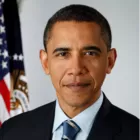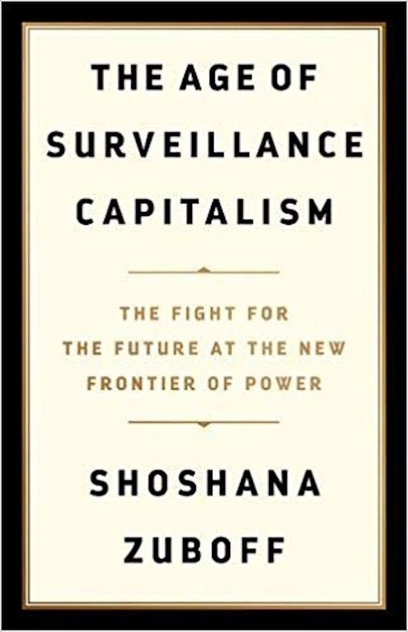
19 Books from 2019 - Barack Obama's Favorites
Barack Obama
"I wanted to share with you my annual list of favorites that made the last year a little brighter."
See all
0
likes
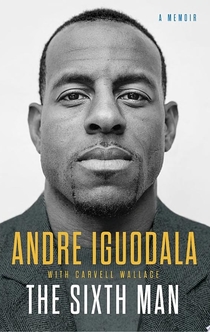
The Sixth Man
**The Instant National Bestseller**The standout memoir from NBA powerhouse Andre Iguodala, the indomitable sixth man of the Golden State Warriors. Andre Iguodala is one of the most admired players in the NBA. And fresh off the Warriors’ fifth Finals appearance in five years, his game has never been stronger. Off the court, Iguodala has earned respect, too—for his successful tech investments, his philanthropy, and increasingly for his contributions to the conversation about race in America. It is no surprise, then, that in his first book, Andre, with his cowriter Carvell Wallace, has pushed himself to go further than he ever has before about his life, not only as an athlete but about what makes him who he is at his core.The Sixth Man traces Andre’s journey from childhood in his Illinois hometown to his Bay Area home court today. Basketball has always been there. But this is the story, too, of his experience of the conflict and racial tension always at hand in a professional league made up largely of African American men; of whether and why the athlete owes the total sacrifice of his body; of the relationship between competition and brotherhood among the players of one of history’s most glorious championship teams. And of what motivates an athlete to keep striving for more once they’ve already achieved the highest level of play they could have dreamed. On drive, on leadership, on pain, on accomplishment, on the shame of being given a role, and the glory of taking a role on: This is a powerful memoir of life and basketball that reveals new depths to the superstar athlete, and offers tremendous insight into most urgent stories being told in American society today.
See all
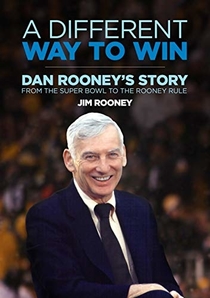
A Different Way to Win
Dan Rooney was one of the most-influential sports executives of his generation, the man who transformed the Pittsburgh Steelers into one of the National Football League's great dynasties and premiere franchises. Some of his most-important achievements, however, took place off the playing field as he sought to bring about equity in the league's hiring practices and peace in his ancestral homeland of Ireland. As a business leader, a philanthropist, a diplomat and the author of the famous Rooney Rule, Dan Rooney was known for his core values, his quiet strength, his effectiveness, and his willingness to talk to and hear from those who disagreed with him. In this poignant account of his father's life, Jim Rooney takes readers behind the scenes to share stories from his hundreds of hours of interviews with business and political leaders; sports and celebrity influencers; and family members. Part memoir, part business biography, part history book, A Different Way to Win underscores the importance of focusing on the long game and the effectiveness in building consensus in a way that is meaningful and sustainable for decades to come.
See all

We Live in Water
From Jess Walter, the bestselling author of Beautiful Ruins, comes We Live in Water - a darkly funny, utterly compelling collection of stories about the American family.We Live in Water brings to vivid life a world of lost fathers and redemptive con men, of personal struggles and diminished dreams, a world marked by the wry wit and generosity of spirit that has made Jess Walter one of America's most talked-about writers. In 'Thief', a blue-collar worker turns unlikely detective to find out which of his kids is stealing from the family vacation fund. In 'We Live in Water', a lawyer returns to a corrupt North Idaho town to find the father who disappeared thirty years earlier. In 'Anything Helps', a homeless man has to 'go to cardboard' to raise enough money to buy his son the new Harry Potter book. In 'Virgo', a local newspaper editor tries to get back at his superstitious ex-girlfriend by screwing with her horoscope. The final story transforms slyly from a portrait of Walter's hometown into a moving contemplation of our times.'A ridiculously talented writer' The New York Times'One of my favourite young American writers' Nick Hornby'Darkly funny, sneakily sad, these stories are very, very good' Publisher's Weekly'A witty and sobering snapshot of recession-era America' Kirkus
See all

Trust Exercise
WINNER OF THE 2019 NATIONAL BOOK AWARD FOR FICTIONNATIONAL BESTSELLER“Electrifying” (People) • “Masterly” (The Guardian) • “Dramatic and memorable” (The New Yorker) • “Magic” (TIME) • “Ingenious” (The Financial Times) • "A gonzo literary performance” (Entertainment Weekly) • “Rare and splendid” (The Boston Globe) • “Remarkable” (USA Today) • “Delicious” (The New York Times) • “Book groups, meet your next selection" (NPR)In an American suburb in the early 1980s, students at a highly competitive performing arts high school struggle and thrive in a rarified bubble, ambitiously pursuing music, movement, Shakespeare, and, particularly, their acting classes. When within this striving “Brotherhood of the Arts,” two freshmen, David and Sarah, fall headlong into love, their passion does not go unnoticed—or untoyed with—by anyone, especially not by their charismatic acting teacher, Mr. Kingsley. The outside world of family life and economic status, of academic pressure and of their future adult lives, fails to penetrate this school’s walls—until it does, in a shocking spiral of events that catapults the action forward in time and flips the premise upside-down. What the reader believes to have happened to David and Sarah and their friends is not entirely true—though it’s not false, either. It takes until the book’s stunning coda for the final piece of the puzzle to fall into place—revealing truths that will resonate long after the final sentence. As captivating and tender as it is surprising, Susan Choi's Trust Exercise will incite heated conversations about fiction and truth, and about friendships and loyalties, and will leave readers with wiser understandings of the true capacities of adolescents and of the powers and responsibilities of adults.
See all
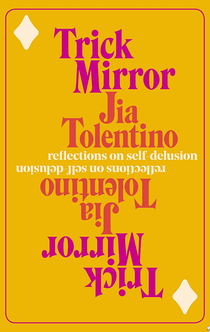
Trick Mirror
NEW YORK TIMES BESTSELLER • “From The New Yorker’s beloved cultural critic comes a bold, unflinching collection of essays about self-deception, examining everything from scammer culture to reality television.”—Esquire “A whip-smart, challenging book.”—Zadie Smith • “Jia Tolentino could be the Joan Didion of our time.”—VultureFINALIST FOR THE NATIONAL BOOK CRITICS CIRCLE’S JOHN LEONARD PRIZE FOR BEST FIRST BOOK • NAMED ONE OF THE TEN BEST BOOKS OF THE YEAR BY THE NEW YORK PUBLIC LIBRARY AND HARVARD CRIMSON AND ONE OF THE BEST BOOKS OF THE YEAR BY The New York Times Book Review • Time • Chicago Tribune • The Washington Post • NPR • Variety • Esquire • Vox • Elle • Glamour • GQ • Good Housekeeping • The Paris Review • Paste • Town & Country • BookPage • Kirkus Reviews • BookRiot • Shelf Awareness Jia Tolentino is a peerless voice of her generation, tackling the conflicts, contradictions, and sea changes that define us and our time. Now, in this dazzling collection of nine entirely original essays, written with a rare combination of give and sharpness, wit and fearlessness, she delves into the forces that warp our vision, demonstrating an unparalleled stylistic potency and critical dexterity. Trick Mirror is an enlightening, unforgettable trip through the river of self-delusion that surges just beneath the surface of our lives. This is a book about the incentives that shape us, and about how hard it is to see ourselves clearly through a culture that revolves around the self. In each essay, Tolentino writes about a cultural prism: the rise of the nightmare social internet; the advent of scamming as the definitive millennial ethos; the literary heroine’s journey from brave to blank to bitter; the punitive dream of optimization, which insists that everything, including our bodies, should become more efficient and beautiful until we die. Gleaming with Tolentino’s sense of humor and capacity to elucidate the impossibly complex in an instant, and marked by her desire to treat the reader with profound honesty, Trick Mirror is an instant classic of the worst decade yet.FINALIST FOR THE PEN/DIAMONSTEIN-SPIELVOGEL AWARD FOR THE ART OF THE ESSAY
See all

The Topeka School
Adam Gordon is a senior at Topeka High School, class of '97. His parents are psychologists, his mom a famous author in the field. A renowned debater and orator, an aspiring poet, and - although it requires a lot of posturing and weight lifting - one of the cool kids, he's also one of the seniors who brings the loner Darren Eberheart into the social scene, with disastrous effects.Deftly shifting perspectives and time periods, The Topeka School is a riveting story about the challenges of raising a good son in a culture of toxic masculinity. It is also a startling prehistory of the present: the collapse of public speech, the tyranny of trolls and the new right, and the ongoing crisis of identity among white men.
See all
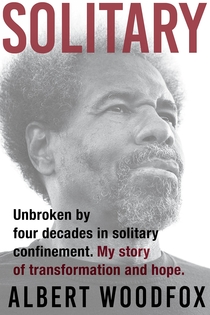
Solitary
Solitary is the unforgettable life story of a man who served more than four decades in solitary confinement—in a 6-foot by 9-foot cell, 23 hours a day, in notorious Angola prison in Louisiana—all for a crime he did not commit. That Albert Woodfox survived was, in itself, a feat of extraordinary endurance against the violence and deprivation he faced daily. That he was able to emerge whole from his odyssey within America’s prison and judicial systems is a triumph of the human spirit, and makes his book a clarion call to reform the inhumanity of solitary confinement in the U.S. and around the world. Arrested often as a teenager in New Orleans, inspired behind bars in his early twenties to join the Black Panther Party because of its social commitment and code of living, Albert was serving a fifty-year sentence in Angola for armed robbery when on April 17, 1972, a white guard was killed. Albert and another member of the Panthers were accused of the crime and immediately put in solitary confinement by the warden. Without a shred of actual evidence against them, their trial was a sham of justice that gave them life sentences in solitary. Decades passed before Albert gained a lawyer of consequence; even so, sixteen more years and multiple appeals were needed before he was finally released in February 2016. Remarkably self-aware that anger or bitterness would have destroyed him in solitary confinement, sustained by the shared solidarity of two fellow Panthers, Albert turned his anger into activism and resistance. The Angola 3, as they became known, resolved never to be broken by the grinding inhumanity and corruption that effectively held them for decades as political prisoners. He survived to give us Solitary, a chronicle of rare power and humanity that proves the better spirits of our nature can thrive against any odds. ‘[A] profound book about friendship ... told simply but not tersely...If the ending of this book does not leave you with tears pooling down in your clavicles, you are a stronger person than I am.’ New York Times ‘This breathtaking, brutal, and intelligent book will move and inspire readers.’ Publishers Weekly [starred review]
See all

Say Nothing
One of the New York Times 10 Best Books of the YearBEST NONFICTION BOOK OF THE YEAR - TIME MAGAZINEONE OF THE BEST 10 BOOKS OF THE YEAR - WASHINGTON POSTNEW YORK TIMES BESTSELLERWINNER OF THE ORWELL PRIZELONGLISTED FOR THE NATIONAL BOOK AWARD "Masked intruders dragged Jean McConville, a 38-year-old widow and mother of 10, from her Belfast home in 1972. In this meticulously reported book -- as finely paced as a novel -- Keefe uses McConville's murder as a prism to tell the history of the Troubles in Northern Ireland. Interviewing people on both sides of the conflict, he transforms the tragic damage and waste of the era into a searing, utterly gripping saga." - New York Times Book Review, Ten Best Books of the YearFrom award-winning New Yorker staff writer Patrick Radden Keefe, a stunning, intricate narrative about a notorious killing in Northern Ireland and its devastating repercussionsIn December 1972, Jean McConville, a thirty-eight-year-old mother of ten, was dragged from her Belfast home by masked intruders, her children clinging to her legs. They never saw her again. Her abduction was one of the most notorious episodes of the vicious conflict known as The Troubles. Everyone in the neighborhood knew the I.R.A. was responsible. But in a climate of fear and paranoia, no one would speak of it. In 2003, five years after an accord brought an uneasy peace to Northern Ireland, a set of human bones was discovered on a beach. McConville's children knew it was their mother when they were told a blue safety pin was attached to the dress--with so many kids, she had always kept it handy for diapers or ripped clothes.Patrick Radden Keefe's mesmerizing book on the bitter conflict in Northern Ireland and its aftermath uses the McConville case as a starting point for the tale of a society wracked by a violent guerrilla war, a war whose consequences have never been reckoned with. The brutal violence seared not only people like the McConville children, but also I.R.A. members embittered by a peace that fell far short of the goal of a united Ireland, and left them wondering whether the killings they committed were not justified acts of war, but simple murders. From radical and impetuous I.R.A. terrorists such as Dolours Price, who, when she was barely out of her teens, was already planting bombs in London and targeting informers for execution, to the ferocious I.R.A. mastermind known as The Dark, to the spy games and dirty schemes of the British Army, to Gerry Adams, who negotiated the peace but betrayed his hardcore comrades by denying his I.R.A. past--Say Nothing conjures a world of passion, betrayal, vengeance, and anguish.
See all
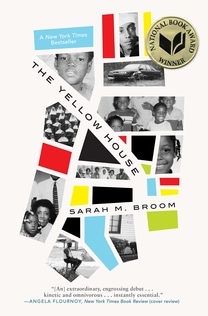
The Yellow House
A NEW YORK TIMES BESTSELLERWINNER OF THE NATIONAL BOOK AWARD FOR NONFICTION'A major book that I suspect will come to be considered among the essential memoirs of this vexing decade' New York Times Book ReviewIn 1961, Sarah M. Broom's mother Ivory Mae bought a shotgun house in the then-promising neighborhood of New Orleans East and built her world inside of it. It was the height of the Space Race and the neighborhood was home to a major NASA plant - the postwar optimism seemed assured. Widowed, Ivory Mae remarried Sarah's father Simon Broom; their combined family would eventually number twelve children. But after Simon died, six months after Sarah's birth, the house would become Ivory Mae's thirteenth and most unruly child.A book of great ambition, Sarah M. Broom's The Yellow House tells a hundred years of her family and their relationship to home in a neglected area of one of America's most mythologized cities. This is the story of a mother's struggle against a house's entropy, and that of a prodigal daughter who left home only to reckon with the pull that home exerts, even after the Yellow House was wiped off the map after Hurricane Katrina. The Yellow House expands the map of New Orleans to include the stories of its lesser known natives, guided deftly by one of its native daughters, to demonstrate how enduring drives of clan, pride, and familial love resist and defy erasure. Located in the gap between the 'Big Easy' of tourist guides and the New Orleans in which Broom was raised, The Yellow House is a brilliant memoir of place, class, race, the seeping rot of inequality, and the internalized shame that often follows. It is a transformative, deeply moving story from an unparalleled new voice of startling clarity, authority and power.
See all

The Orphan Master's Son
WINNER OF THE PULITZER PRIZE FOR FICTION 2013 NEW YORK TIMES BESTSELLERNATIONAL BOOK AWARD FINALIST'You know you are in the hands of someone who can tell a story ... fantastic' ZADIE SMITH'Excavates the very meaning of life' New York TimesThe award-winning and New York Times bestselling novel: a surreal, picaresque and utterly brutal life journey of a young orphan in North Korea.Pak Jun Do knows he is special. He knows he must be the son of the master of the orphanage, not some kid dumped by his parents – it was obvious from the way his father singled him out for beatings. He knows he is special when he is picked as a spy and kidnapper for his country, the glorious Democratic Republic of North Korea. He knows he must find his true love, Sun Moon, the greatest opera star who ever lived, before it’s too late.He knows he’s not like the other prisoners in the camp. He’s going to get out soon. Definitely'An addictive novel of daring ingenuity' DAVID MITCHELL
See all

Normal People
OVER ONE MILLION COPIES SOLDTHE NUMBER ONE SUNDAY TIMES AND TOP FIVE NEW YORK TIMES BESTSELLERA BBC ONE DRAMA ADAPTATION CURRENTLY IN PRODUCTIONWINNER OF THE COSTA NOVEL AWARD 2018WINNER OF THE AN POST IRISH BOOK AWARDS NOVEL OF THE YEARWINNER OF NOVEL OF THE YEAR AND BOOK OF THE YEAR AT THE BRITISH BOOK AWARDSWINNER OF THE SPECSAVERS NATIONAL BOOK AWARDS INTERNATIONAL AUTHOR OF THE YEARLONGLISTED FOR THE MAN BOOKER PRIZE 2018LONGLISTED FOR THE WOMEN'S PRIZE FOR FICTION 2019Connell and Marianne grow up in the same small town in the west of Ireland, but the similarities end there. In school, Connell is popular and well-liked, while Marianne is a loner. But when the two strike up a conversation - awkward but electrifying - something life-changing begins. Normal People is a story of mutual fascination, friendship and love. It takes us from that first conversation to the years beyond, in the company of two people who try to stay apart but find they can't. SHORTLISTED FOR THE IRISH NOVEL OF THE YEAR AWARD 2019SHORTLISTED FOR THE RSL ENCORE PRIZE 2019LONGLISTED FOR THE RATHBONES FOLIO PRIZE 2019
See all

Lot
One of Barack Obama’s “Favorite Books of the Year” "Phenomenal" --Justin Torres, author of We the Animals"Brilliant" --Nicole Dennis-Benn, author of Here Comes the Sun“A profound exploration of the true meaning of borders.” —The New York Times Book Review NAMED ONE OF THE 10 BEST BOOKS OF 2019 in the New York Times by Dwight GarnerA New York Times Notable Book of 2019In the city of Houston - a sprawling, diverse microcosm of America - the son of a black mother and a Latino father is coming of age. He's working at his family's restaurant, weathering his brother's blows, resenting his older sister's absence. And discovering he likes boys.Around him, others live and thrive and die in Houston's myriad neighborhoods: a young woman whose affair detonates across an apartment complex, a ragtag baseball team, a group of young hustlers, hurricane survivors, a local drug dealer who takes a Guatemalan teen under his wing, a reluctant chupacabra.Bryan Washington's brilliant, viscerally drawn world vibrates with energy, wit, raw power, and the infinite longing of people searching for home. With soulful insight into what makes a community, a family, and a life, Lot explores trust and love in all its unsparing and unsteady forms.
See all

Lost Children Archive
WINNER OF THE ANDREW CARNEGIE MEDAL FOR EXCELLENCE IN FICTIONNATIONAL BOOK CRITICS CIRCLE AWARD FINALISTFINALIST FOR THE KIRKUS PRIZE FOR FICTIONLONGLISTED FOR THE BOOKER PRIZELONGLISTED FOR THE ASPEN WORDS LITERARY PRIZEOne of The New York Times 10 Best Books of the YearA Best Book of 2019: Entertainment Weekly; TIME; NPR; O, The Oprah Magazine; The Washington Post; GQ; The Guardian; Chicago Tribune; Dallas Morning News; and the New York Public Library“The novel truly becomes novel again in Luiselli’s hands—electric, elastic, alluring, new.” --Parul Sehgal, The New York Times"Impossibly smart, full of beauty, heart and insight . . . Everyone should read this book." --Tommy OrangeFrom the two-time NBCC Finalist, an emotionally resonant, fiercely imaginative new novel about a family whose road trip across America collides with an immigration crisis at the southwestern border--an indelible journey told with breathtaking imagery, spare lyricism, and profound humanity.A mother and father set out with their two children, a boy and a girl, driving from New York to Arizona in the heat of summer. Their destination: Apacheria, the place the Apaches once called home.Why Apaches? asks the ten-year-old son. Because they were the last of something, answers his father.In their car, they play games and sing along to music. But on the radio, there is news about an "immigration crisis": thousands of kids trying to cross the southwestern border into the United States, but getting detained--or lost in the desert along the way.As the family drives--through Virginia to Tennessee, across Oklahoma and Texas--we sense they are on the brink of a crisis of their own. A fissure is growing between the parents, one the children can almost feel beneath their feet. They are led, inexorably, to a grand, harrowing adventure--both in the desert landscape and within the chambers of their own imaginations.Told through several compelling voices, blending texts, sounds, and images, Lost Children Archive is an astonishing feat of literary virtuosity. It is a richly engaging story of how we document our experiences, and how we remember the things that matter to us the most. With urgency and empathy, it takes us deep into the lives of one remarkable family as it probes the nature of justice and equality today.
See all

How to Do Nothing
"A complex, smart and ambitious book that at first reads like a self-help manual, then blossoms into a wide-ranging political manifesto."—Jonah Engel Bromwich, The New York Times Book ReviewOne of President Barack Obama's "Favorite Books of 2019"NAMED ONE OF THE BEST BOOKS OF THE YEAR BY: Time • The New Yorker • NPR • GQ • Elle • Vulture • Fortune • Boing Boing • The Irish Times • The New York Public Library • The Brooklyn Public LibraryPorchlight's Personal Development & Human Behavior Book of the YearNothing is harder to do these days than nothing. But in a world where our value is determined by our 24/7 data productivity . . . doing nothing may be our most important form of resistance. So argues artist and critic Jenny Odell in this field guide to doing nothing (at least as capitalism defines it). Odell sees our attention as the most precious—and overdrawn—resource we have. Once we can start paying a new kind of attention, she writes, we can undertake bolder forms of political action, reimagine humankind’s role in the environment, and arrive at more meaningful understandings of happiness and progress. Far from the simple anti-technology screed, or the back-to-nature meditation we read so often, How to do Nothing is an action plan for thinking outside of capitalist narratives of efficiency and techno-determinism. Provocative, timely, and utterly persuasive, this book is a four-course meal in the age of Soylent.
See all

The Heartbeat of Wounded Knee
FINALIST FOR THE 2019 NATIONAL BOOK AWARDLONGLISTED FOR THE 2020 ANDREW CARNEGIE MEDAL FOR EXCELLENCEA NEW YORK TIMES BESTSELLER Named a best book of 2019 by The New York Times, TIME, The Washington Post, NPR, Hudson Booksellers, The New York Public Library, The Dallas Morning News, and Library Journal."Chapter after chapter, it's like one shattered myth after another." - NPR"An informed, moving and kaleidoscopic portrait... Treuer's powerful book suggests the need for soul-searching about the meanings of American history and the stories we tell ourselves about this nation's past.." - New York Times Book Review, front pageA sweeping history--and counter-narrative--of Native American life from the Wounded Knee massacre to the present.The received idea of Native American history--as promulgated by books like Dee Brown's mega-bestselling 1970 Bury My Heart at Wounded Knee--has been that American Indian history essentially ended with the 1890 massacre at Wounded Knee. Not only did one hundred fifty Sioux die at the hands of the U. S. Cavalry, the sense was, but Native civilization did as well. Growing up Ojibwe on a reservation in Minnesota, training as an anthropologist, and researching Native life past and present for his nonfiction and novels, David Treuer has uncovered a different narrative. Because they did not disappear--and not despite but rather because of their intense struggles to preserve their language, their traditions, their families, and their very existence--the story of American Indians since the end of the nineteenth century to the present is one of unprecedented resourcefulness and reinvention. In The Heartbeat of Wounded Knee, Treuer melds history with reportage and memoir. Tracing the tribes' distinctive cultures from first contact, he explores how the depredations of each era spawned new modes of survival. The devastating seizures of land gave rise to increasingly sophisticated legal and political maneuvering that put the lie to the myth that Indians don't know or care about property. The forced assimilation of their children at government-run boarding schools incubated a unifying Native identity. Conscription in the US military and the pull of urban life brought Indians into the mainstream and modern times, even as it steered the emerging shape of self-rule and spawned a new generation of resistance. The Heartbeat of Wounded Knee is the essential, intimate story of a resilient people in a transformative era.
See all

Girl, Woman, Other
***WINNER OF THE BOOKER PRIZE 2019***SUNDAY TIMES BESTSELLERThis is Britain as you've never seen it.This is Britain as it has never been told.From Newcastle to Cornwall, from the birth of the twentieth century to the teens of the twenty-first, Girl Woman Other follows a cast of twelve characters on their personal journeys through this country and the last hundred years. They're each looking for something - a shared past, an unexpected future, a place to call home, somewhere to fit in, a lover, a missed mother, a lost father, even just a touch of hope . . . 'Masterful . . . A choral love song to black womanhood in modern Great Britain' Elle 'Exceptional. Ambitious, flowing and all-encompassing, an offbeat narrative that'll leave your mind in an invigorated whirl... [It] unites poetry, social history, women's voices and beyond. You have to order it right now' Stylist'Bernardine Evaristo can take any story from any time and turn it into something vibrating with life' Ali Smith, author of How to be both'Sparkling, inventive' Sunday Times'Funny, sad, tender and true, deserves to win awards' Red'Brims with vitality' Financial TimesSHORTLISTED FOR THE GORDON BURN PRIZE 2019
See all

Furious Hours
SHORTLISTED FOR THE 2019 BAILLIE GIFFORD PRIZE FOR NON-FICTIONChosen as one of Barack Obama's favourite books of 2019‘A triumph on every level. One of the losses to literature is that Harper Lee never found a way to tell a gothic true-crime story she’d spent years researching. Casey Cep has excavated this mesmerizing story and tells it with grace and insight and a fierce fidelity to the truth.’DAVID GRANN, author of Killers of the Flower Moon_____________________________The stunning story of an Alabama serial killer and the true-crime book that Harper Lee worked on obsessively in the years after To Kill a MockingbirdReverend Willie Maxwell was a rural preacher accused of murdering five of his family members for insurance money in the 1970s. With the help of a savvy lawyer, he escaped justice for years until a relative shot him dead at the funeral of his last victim. Despite hundreds of witnesses, Maxwell’s murderer was acquitted – thanks to the same attorney who had previously defended the Reverend.As Alabama is consumed by these gripping events, it’s not long until news of the case reaches Alabama’s – and America’s – most famous writer. Intrigued by the story, Harper Lee makes a journey back to her home state to witness the Reverend’s killer face trial. Lee had the idea of writing her own In Cold Blood, the true-crime classic she had helped her friend Truman Capote research. She spent a year in town reporting on the Maxwell case and many more years trying to finish the book she called The Reverend.Now Casey Cep brings this story to life, from the shocking murders to the courtroom drama to the racial politics of the Deep South. At the same time, she offers a deeply moving portrait of one of America’s most beloved writers and her struggle with fame, success and the mystery of artistic creativity.This is the story Harper Lee wanted to write. This is the story of why she couldn’t._____________________________'Fascinating ... Cep has spliced together a Southern-gothic tale of multiple murder and the unhappy story of Lee’s literary career, to produce a tale that is engrossing in its detail and deeply poignant... [Cep] spends the first third of Furious Hours following the jaw-dropping trail of murders ... Engrossing ... Cep writes about all this with great skill, sensitivity and attention to detail.'SUNDAY TIMES‘It’s been a long time since I picked up a book so impossible to put down. Furious Hours made me forget dinner, ignore incoming calls, and stay up reading into the small hours. It’s a work of literary and legal detection as gripping as a thriller. But it’s also a meditation on motive and mystery, the curious workings of history, hope, and ambition, justice, and the darkest matters of life and death. Casey Cep’s investigation into an infamous Southern murder trial and Harper Lee’s quest to write about it is a beautiful, sobering, and sometimes chilling triumph.’HELEN MACDONALD, author of H is for Hawk'This story is just too good ... Furious Hours builds and builds until it collides with the writer who saw the power of Maxwell’s story, but for some reason was unable to harness it. It lays bare the inner life of a woman who had a world-class gift for hiding ... [this] book makes a magical leap, and it goes from being a superbly written true-crime story to the sort of story that even Lee would have been proud to write.'MICHAEL LEWIS, author of Moneyball and The Big Short
See all
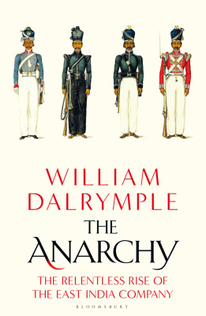
The Anarchy
THE TOP 5 SUNDAY TIMES BESTSELLERONE OF BARACK OBAMA'S BEST BOOKS OF 2019 LONGLISTED FOR THE BAILLIE GIFFORD PRIZE FOR NON-FICTION 2019A FINANCIAL TIMES, OBSERVER, DAILY TELEGRAPH, WALL STREET JOURNAL AND TIMES BOOK OF THE YEAR'Dalrymple is a superb historian with a visceral understanding of India ... A book of beauty' – Gerard DeGroot, The TimesIn August 1765 the East India Company defeated the young Mughal emperor and forced him to establish in his richest provinces a new administration run by English merchants who collected taxes through means of a ruthless private army – what we would now call an act of involuntary privatisation.The East India Company's founding charter authorised it to 'wage war' and it had always used violence to gain its ends. But the creation of this new government marked the moment that the East India Company ceased to be a conventional international trading corporation dealing in silks and spices and became something much more unusual: an aggressive colonial power in the guise of a multinational business. In less than four decades it had trained up a security force of around 200,000 men – twice the size of the British army – and had subdued an entire subcontinent, conquering first Bengal and finally, in 1803, the Mughal capital of Delhi itself. The Company's reach stretched until almost all of India south of the Himalayas was effectively ruled from a boardroom in London.The Anarchy tells the remarkable story of how one of the world's most magnificent empires disintegrated and came to be replaced by a dangerously unregulated private company, based thousands of miles overseas in one small office, five windows wide, and answerable only to its distant shareholders. In his most ambitious and riveting book to date, William Dalrymple tells the story of the East India Company as it has never been told before, unfolding a timely cautionary tale of the first global corporate power.
See all
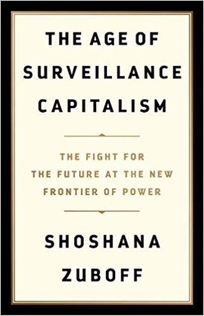
The Age of Surveillance Capitalism
THE TOP 10 SUNDAY TIMES BESTSELLER Shortlisted for the FT Business Book of the Year Award 2019 'Easily the most important book to be published this century. I find it hard to take any young activist seriously who hasn't at least familarised themselves with Zuboff's central ideas.' - Zadie Smith, The GuardianThe challenges to humanity posed by the digital future, the first detailed examination of the unprecedented form of power called "surveillance capitalism," and the quest by powerful corporations to predict and control us.The heady optimism of the Internet's early days is gone. Technologies that were meant to liberate us have deepened inequality and stoked divisions. Tech companies gather our information online and sell it to the highest bidder, whether government or retailer. Profits now depend not only on predicting our behaviour but modifying it too. How will this fusion of capitalism and the digital shape our values and define our future?Shoshana Zuboff shows that we are at a crossroads. We still have the power to decide what kind of world we want to live in, and what we decide now will shape the rest of the century. Our choices: allow technology to enrich the few and impoverish the many, or harness it and distribute its benefits. The Age of Surveillance Capitalism is a deeply-reasoned examination of the threat of unprecedented power free from democratic oversight. As it explores this new capitalism's impact on society, politics, business, and technology, it exposes the struggles that will decide both the next chapter of capitalism and the meaning of information civilization. Most critically, it shows how we can protect ourselves and our communities and ensure we are the masters of the digital rather than its slaves.
See all
